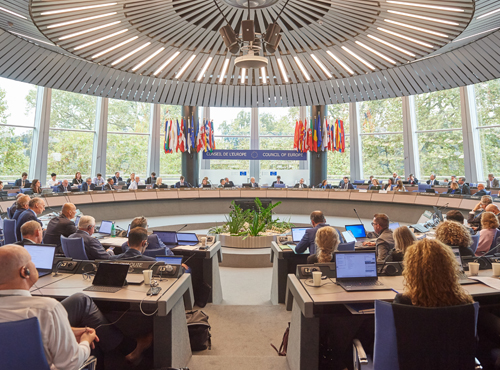 The Committee of Ministers
The Committee of Ministers

The Committee of Ministers is the Council of Europe’s statutory decision-making body. Its role and functions are broadly defined in Chapter IV of the Statute. It is made up of the Ministers for Foreign Affairs of member States. The Committee meets at ministerial level once a year and at Deputies' level (Permanent Representatives to the Council of Europe) weekly. The conduct of meetings is governed by the Statute and Rules of Procedure. The Ministers’ Deputies are assisted by a Bureau, rapporteur groups, thematic coordinators and ad hoc working parties.
- Ministerial level
Sessions of the Committee of Ministers - Deputy level
Meetings of the Ministers' Deputies - Deputy level: Execution of judgments of the European Court of Human Rights
Human Rights (DH) meetings of the Ministers' Deputies
 Bureau of the Ministers' Deputies
Bureau of the Ministers' Deputies
The Bureau assists the Ministers' Deputies. It consists of six members in the English alphabetical order: the current President, the two previous Presidents and the three future Presidents. The Bureau has no decision-making power on questions of substance and may not substitute itself for the full Committee.
 Subsidiary groups
Subsidiary groups
Rapporteur groups, ad hoc working parties and thematic coordinators are informal working structures of the Ministers' Deputies and have no decision-making power. They prepare decisions for adoption by the Committee of Ministers.
More about the Rapporteur groups >>




